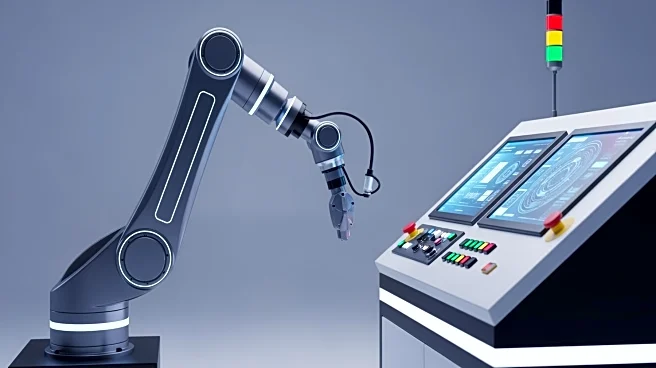What's Happening?
The robotics industry is experiencing a surge in interest, with numerous startups entering the field. However, the path to success is fraught with challenges, as highlighted by Dorota Shortell's presentation at RoboBusiness 2025. Drawing from over 20 years
of experience in hardware and robotic systems, Shortell shared insights from successful and failed robotics companies. Key lessons were categorized into five areas: product market fit, funding, development process, team, and scaling. Successful companies emphasized understanding customer needs before developing technology, securing a beachhead client for co-development, and maintaining a fast feedback cycle. Funding challenges were also addressed, with advice on choosing investors wisely and developing a sustainable business model. The development process highlighted the importance of using off-the-shelf hardware for prototypes and embracing structured product development processes. Team dynamics focused on the need for humility and strong technical leadership, while scaling emphasized the complexities of moving from prototype to production.
Why It's Important?
The insights shared are crucial for new entrants in the robotics industry, as they provide a roadmap to avoid common pitfalls and increase the likelihood of success. Understanding customer needs and securing early revenue are critical for sustainability. The emphasis on structured development processes and team dynamics highlights the importance of strategic planning and leadership in navigating the complexities of hardware development. These lessons are not only applicable to robotics but can also be extended to other tech-driven industries, offering a blueprint for innovation and growth. Companies that can effectively implement these strategies stand to gain a competitive edge, while those that fail to adapt may struggle to survive.
What's Next?
For robotics companies, the next steps involve applying these lessons to their operations. This includes refining product development processes, securing strategic partnerships, and ensuring that their offerings align with market needs. As the industry continues to evolve, companies must remain agile and responsive to changes in technology and customer expectations. The focus will likely shift towards integrating advanced technologies like AI and machine learning to enhance product capabilities. Additionally, companies will need to navigate regulatory landscapes and potential supply chain disruptions, requiring robust risk management strategies.
Beyond the Headlines
The broader implications of these insights extend to the ethical and cultural dimensions of robotics. As robots become more integrated into daily life, companies must consider the societal impact of their technologies. This includes addressing concerns about job displacement and ensuring that products are designed with user accessibility in mind. The lessons also underscore the importance of fostering a culture of innovation and collaboration within organizations, which can drive long-term success and industry leadership.
















